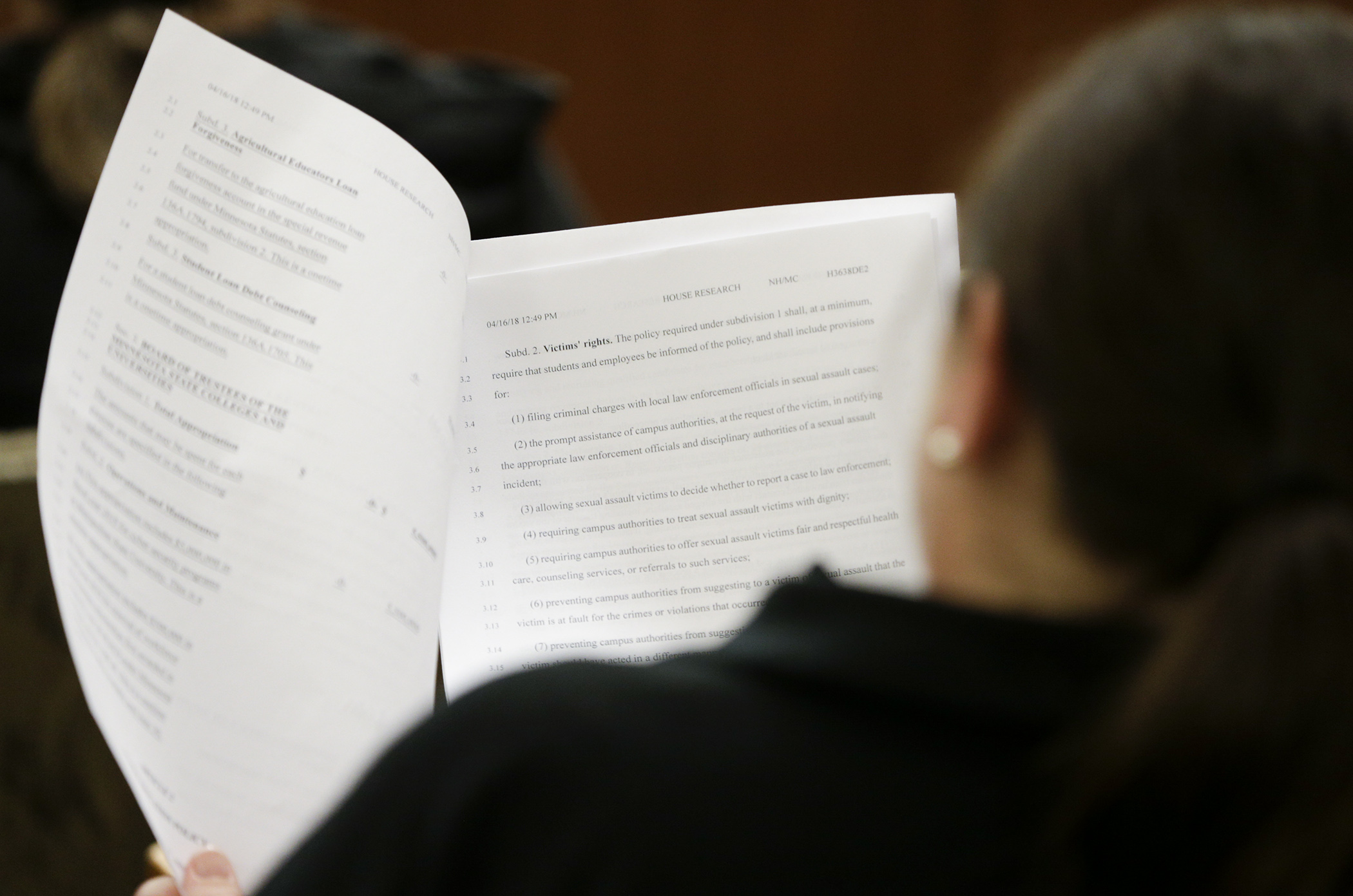Omnibus higher education bill aims, in part, to enhance cybersecurity education

With a $5 million spending target for Fiscal Year 2019, several monetary requests presented to the House Higher Education and Career Readiness Policy and Finance Committee will likely go unanswered this year.
The committee reviewed the omnibus higher education finance bill, HF3638, as amended, sponsored by Rep. Bud Nornes (R-Fergus Falls), Tuesday. It plans to hear testimony, take additional amendments and vote on the bill tomorrow. Its companion, SF3671, sponsored by Senate President Michelle Fischbach (R-Paynesville), awaits action by the Senate Higher Education Finance and Policy Committee.
The bill’s primary investment would be a one-time $5 million appropriation to Minnesota State to be used to enhance the cybersecurity program at Metropolitan State University.
An additional $1 million of surplus funds from the Minnesota State Occupational Grant Pilot Program for Fiscal Year 2018 would be redistributed to other programs. This includes $50,000 in student debt counseling grants, $350,000 in state grants and $100,000 in agricultural educator loan forgiveness.
The omnibus higher education finance bill also includes a handful of new policy provisions, most notability one that would modify the University of Minnesota’s Regent selection process, by dissolving the citizen Regent Candidate Advisory Council and replacing it with a Legislative Commission on Regent Selection comprised of lawmakers.
Other notable provisions would:
- require the University of Minnesota to collect statistical data on incidents of sexual harassment;
- require higher education institutes to provide sexual assault victims with information about legal resources;
- create a special revenue fund for spinal cord injury and traumatic brain injury research grants;
- require Minnesota State leaders to develop a plan to increase the use of affordable textbooks and instructional materials, as well as explore methods to disclose or display the cost of all textbooks and materials required for a course prior to registration;
- require higher education institutions to disclose the student complaint process and rights on their web site, and within their student handbook and student catalog; and
- appropriate $500,000 to Minnesota State for renewal of workforce development scholarships to first be awarded in academic year 2018-19.
The following are selected bills that have been incorporated in part, or in whole, into the omnibus higher education finance bill.
Related Articles
Search Session Daily
Advanced Search OptionsPriority Dailies
Legislative leaders set 2026 committee deadlines
By Lisa Kaczke Legislative leaders on Tuesday officially set the timeline for getting bills through the committee process during the upcoming 2026 session.
Here are the three deadlines for...
Legislative leaders on Tuesday officially set the timeline for getting bills through the committee process during the upcoming 2026 session.
Here are the three deadlines for...